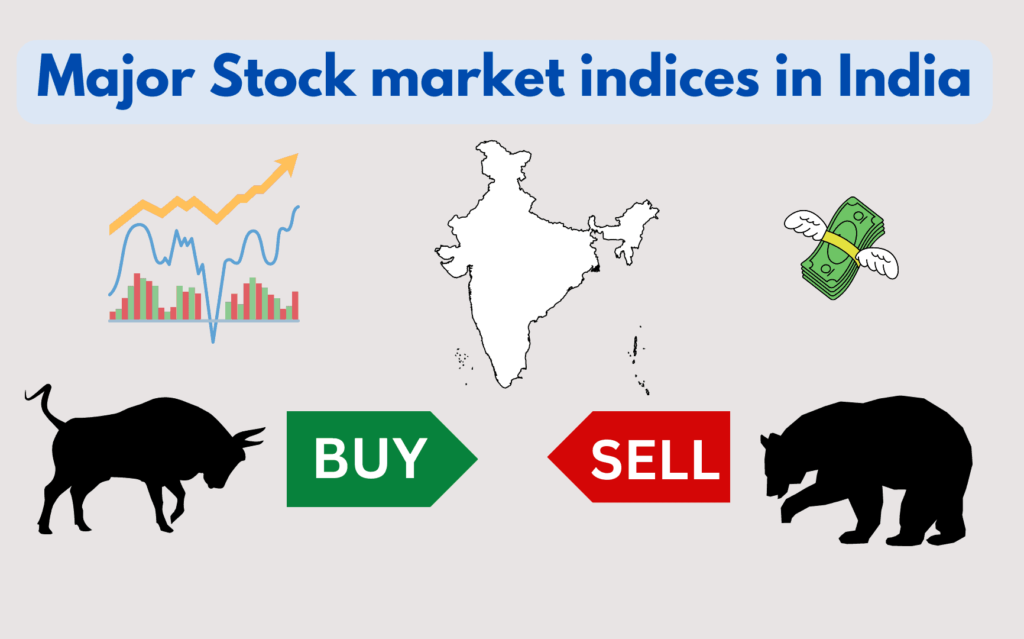What is the stock market? The stock market is a place where publicly traded companies’ stocks are bought and sold. It is a marketplace where investors can buy and sell shares of stock in publicly traded companies. The stock market can be a physical location or an electronic system and is typically regulated by government agencies. The stock market can be used as an indicator of a country’s economic health, as a rise in stock prices can indicate growth and prosperity, while a decline in stock prices can indicate recession or instability.
What is the stock market?
The stock market is a marketplace where stocks of publicly traded companies are bought and sold. The stock market is a way for companies to raise money by issuing shares of stock to the public, and for investors to buy and sell those shares. The value of a company’s stock is determined by the supply and demand for the stock in the market, which is influenced by a variety of factors including the company’s financial performance and overall economic conditions.
Classification of Stock Market
There are several ways to classify stock markets, but some of the most common include:
Primary market vs. secondary market: The primary market is where new stock is issued and sold to the public for the first time, while the secondary market is where existing shares are bought and sold among investors.
Developed markets vs. emerging markets: Developed markets include stock markets in developed countries such as the United States, Japan, and Germany, while emerging markets include stock markets in developing countries such as China, India, and Brazil.
Regional markets: Stock markets can also be classified by geographic region, such as the North American stock market, the European stock market, and the Asian stock market.
Sectoral markets: Stock markets can be classified by the sectors they represent like Technology, Healthcare, Energy etc.
Size of companies: Stock markets can also be classified by the size of the companies that are listed on them, such as small-cap, mid-cap, and large-cap markets.
Participants in the stock market
There are several types of participants in the stock market, including:
Retail investors: These are individual investors who buy and sell stocks for their own personal accounts.
Institutional investors: These are large organizations such as mutual funds, pension funds, and insurance companies that buy and sell stocks on behalf of their clients.
Market makers: These are firms or individuals that act as intermediaries between buyers and sellers, making a market in a particular security by buying and selling shares.
Investment bankers: These are firms that assist companies in issuing new securities, such as stocks and bonds, by underwriting the securities and helping to bring them to market.
Brokers: These are firms or individuals who act as intermediaries between buyers and sellers, executing trades on behalf of their clients in exchange for a commission or fee.
Hedge funds: These are investment funds that use a variety of strategies to earn returns for their investors, often using leverage and derivatives to make high-risk, high-return investments.
Regulators: These are government agencies such as the Securities and Exchange Commission (SEC) that oversee and regulate the stock market to protect investors and maintain orderly markets.
What is the stock market?

Types of stock indices in India
There are several types of stock indices in India, including:
S&P BSE SENSEX: Also known as the BSE 30, this index is composed of 30 of the largest and most actively traded companies listed on the Bombay Stock Exchange (BSE).
NIFTY 50: Also known as the Nifty, this index is composed of 50 of the largest and most actively traded companies listed on the National Stock Exchange (NSE).
BSE 100: This index is composed of the 100 largest and most actively traded companies listed on the BSE.
NIFTY 500: This index is composed of the top 500 companies listed on the NSE, across various sectors.
BSE Small Cap: This index is composed of small-cap companies listed on the BSE.
NIFTY Midcap 100: This index is composed of the top 100 mid-cap companies listed on the NSE.
BSE Greenex: This is an index of companies that have demonstrated good performance in environmental, social, and governance criteria.
NIFTY Auto: This index is composed of companies in the automobile sector listed on the NSE.
NIFTY IT: This index is composed of companies in the information technology sector listed on the NSE.
NIFTY Private Bank: This index is composed of private sector banks listed on the NSE.
These indexes are widely used as a benchmark for the performance of the stock market and individual sectors within it.
Types of orders used in stock investment
There are several types of orders that can be used in stock investment, including:
Market Order: An order to buy or sell a stock at the current market price.
Limit Order: An order to buy or sell a stock at a specific price or better.
Stop Order: An order to buy or sell a stock once a certain price is reached, also known as a stop-loss order.
Stop-Limit Order: A combination of a stop order and a limit order, which becomes a limit order once the stop price is reached.
Market on Close Order: An order to buy or sell a stock at the closing price of the market.
Good till Cancelled (GTC) Order: An order that remains active until it is either executed or cancelled by the investor.
Immediate or Cancel (IOC) Order: An order that must be executed immediately, and any remaining shares are cancelled.
Fill or Kill (FOK) Order: An order that must be executed immediately in its entirety, or the entire order is cancelled.
All these orders can be used to enter or exit a position in a stock, and they have different uses depending on the investor’s strategy and risk tolerance.
What is the stock market?

Terms you need to know when Investing in Stocks
When investing in stocks, it’s important to understand the following terms:
Stock: A type of security that represents ownership in a corporation.
Dividend: A distribution of a portion of a company’s earnings to shareholders.
Bull Market: A market characterized by rising prices and optimistic investor sentiment.
Bear Market: A market characterized by falling prices and pessimistic investor sentiment.
Volatility: The degree of fluctuation of a stock’s price over time.
P/E ratio: Price-to-earnings ratio, a valuation ratio that compares a company’s current stock price to its per-share earnings.
Market Capitalization: The total value of a company’s outstanding shares.
Beta: A measure of a stock’s volatility in relation to the overall market.
Blue-chip stocks: well-established and financially sound companies, often considered to be a safe investment.
Growth stock: A stock of a company that is expected to grow at an above-average rate compared to the market.
Value stock: A stock that is considered undervalued by the market and has a low P/E ratio.
IPO: Initial public offering, the first sale of stock by a company to the public.
ETF: Exchange-traded fund, a type of investment fund that is traded on stock exchanges, much like stocks.
Index: A group of stocks that represent a particular market or sector, used as a benchmark for investors.
Hopefully, through this article – What is the stock market?, we have helped you to imagine what securities are and how the stock market works. If you want to know more about stock investment, please comment..
Read Also :



